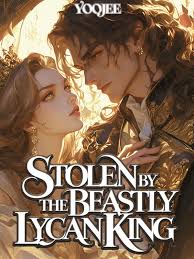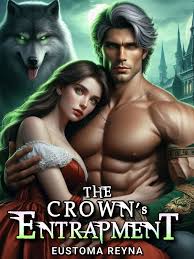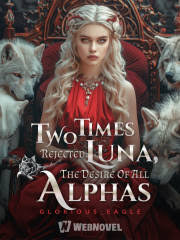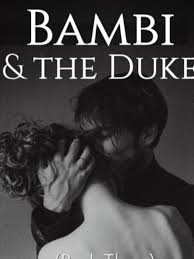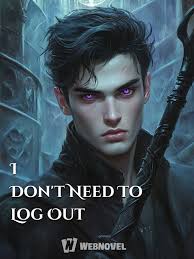The Story in 3 Sentences
Lorelai, a powerless and abused princess in a royal court that sees her only as a political bargaining chip, is forced into an arranged marriage with the sinister Duke Vincent Kalder, whose past brides have all vanished without a trace.
Her fate shifts dramatically when she encounters Rhaegar, the enigmatic and formidable King of Lycans—a former slave who now rules the continent’s most feared kingdom—and who becomes inexplicably fixated on claiming her as his own.
As Rhaegar steals her away from her gilded cage, Lorelai begins a journey of survival, self-discovery, and reluctant trust, navigating a world of dark magic, possessive devotion, and the fragile line between captivity and salvation.
Why It Stands Out
1. A Beast King With a Slave’s Soul
Unlike typical domineering alpha leads, Rhaegar carries the scars of past subjugation, lending depth to his ferocity; his rise from bondage to sovereignty reframes the “beast” archetype as someone shaped by pain rather than born to cruelty.
2. Emotional Realism in a Fantasy Cage
The novel avoids romanticizing abuse; Lorelai’s trauma from her stepmother Queen Althea and her creepy stepbrother is portrayed with psychological weight, making her gradual empowerment feel earned rather than rushed.
3. Clean Yet Intense Romantic Tension
Readers praise the absence of non-consensual content despite the high-stakes possessiveness—a rarity in the genre—while still delivering palpable chemistry, slow-burn intimacy, and emotionally charged encounters that prioritize mutual growth.
Characters That Leave a Mark
There’s Queen Althea Erelith – the cold and calculating stepmother who treats Lorelai as disposable political currency, orchestrating her doomed engagement to Duke Kalder with chilling efficiency.
You’ll meet Duke Vincent Kalder, who embodies aristocratic menace; his charm masks a predatory history, and his looming presence in early chapters creates a visceral sense of dread that makes Rhaegar’s intervention feel like deliverance.
And Rhaegar? They’re the one who defies every expectation of the “beastly king” trope—ruthless in war but startlingly tender in private, driven not by lust alone but by a fated, almost sacred obsession that borders on reverence.
The Flaws Fans Debate
Some readers note the pacing occasionally stalls in the middle chapters with repetitive internal monologues from Lorelai about her unworthiness.
A few critics argue that the stepbrother’s obsessive behavior is underdeveloped, serving more as atmospheric threat than a fully realized antagonist.
Others mention that while Rhaegar’s possessiveness is framed as protective, it sometimes blurs into controlling behavior that isn’t sufficiently challenged by the narrative.
Must-Experience Arcs
Ch. 1–20: The Gilded Cage – Lorelai endures daily humiliation in the royal palace, learns of her forced marriage to Duke Kalder, and has her first electrifying, clandestine encounter with the mysterious Lycan King.
Ch. 60–100: Stolen Heart, Stolen Throne – After Rhaegar abducts her, Lorelai grapples with fear, desire, and growing loyalty as political enemies close in, secrets about her lineage surface, and the bond between her and Rhaegar deepens through shared vulnerability.
Ch. 150–193: Crown of Thorns and Moonlight – The final confrontation with Queen Althea and Duke Kalder culminates in a magical reckoning, where Lorelai must choose between reclaiming her human throne or embracing her destiny as the Lycan Queen beside Rhaegar.
Killer Quotes
“You have two minutes left, Hussein. He let out. Hussein was struggling, his face all flushed, yet he swung his sword back and forth. The Lycan King stood unmoved—power incarnate.”
“He trespassed into my home and stole my food, he got what he deserved. he stated calmly.”
“Take his hand and draw him into the river of your heart. Let him rest in its current, let him lay down the weight of centuries in your warmth.”
Cultural Impact
Fans on Webnovel consistently rate it above 4.9, calling it “one of the most beautiful werewolf books on the app.”
The phrase “stolen by the beastly lycan king” became a meme template for readers joking about being “kidnapped by hot fictional alphas who actually respect boundaries.”
Multiple fan artists on Instagram and Twitter created illustrations of Rhaegar and Lorelai, often captioned with lines like “my king saw me when no one else did.”
Final Verdict
Start Here If You Want:
A darkly romantic escape where the “abduction” is less about force and more about rescue from emotional starvation.
A male lead who is terrifying to enemies but achingly gentle with his chosen one—without falling into toxic clichés.
A heroine who starts broken but rebuilds herself through quiet courage, not sudden magical power-ups.
Study If You Love:
Narratives that rework the Beauty and the Beast myth through post-colonial and class-conscious lenses—Rhaegar’s past as a slave adds socio-political texture rarely seen in romance fantasy.
The psychological interplay between trauma and trust, especially how intimacy can be a form of healing when handled with narrative care.
Worldbuilding that blends historical court drama with lycanthrope lore, where “Gypsy” refers to a nomadic tribe with its own magic and honor codes, not a slur.
Avoid If You Prefer:
Stories with morally ambiguous or gray-area consent—this novel avoids that, but if you expect gritty realism in power dynamics, you may find Rhaegar’s devotion too idealized.
Fast-paced action over emotional introspection; the focus is on character interiority and relationship development, not battle sequences.
Ensemble casts—this is a tightly focused duet between Lorelai and Rhaegar, with supporting characters serving thematic or plot functions rather than deep subplots.
